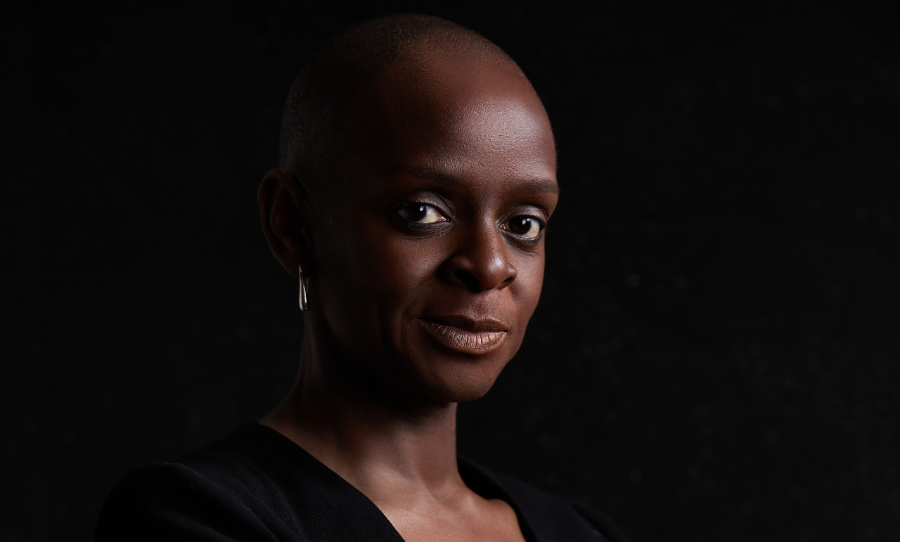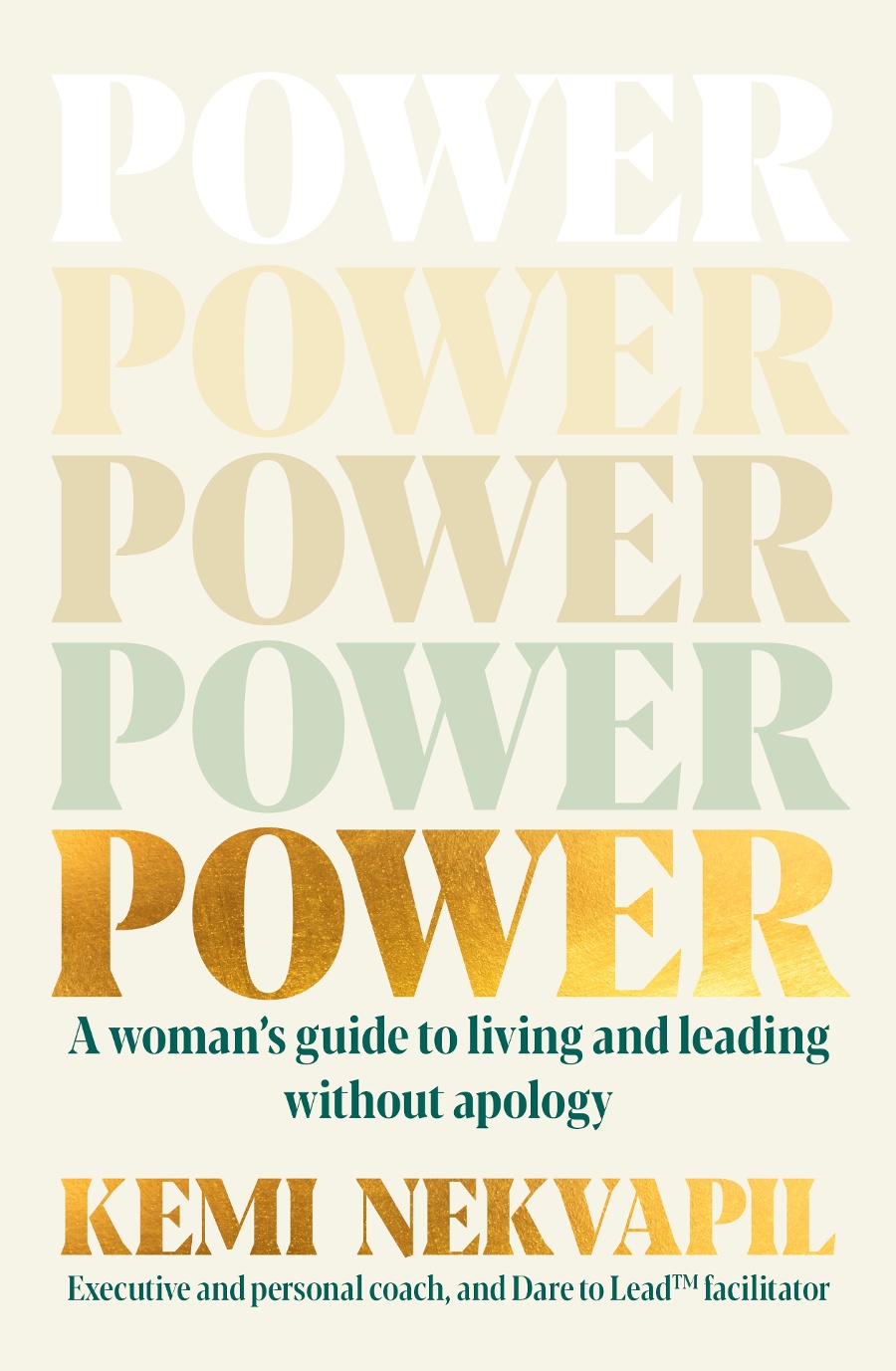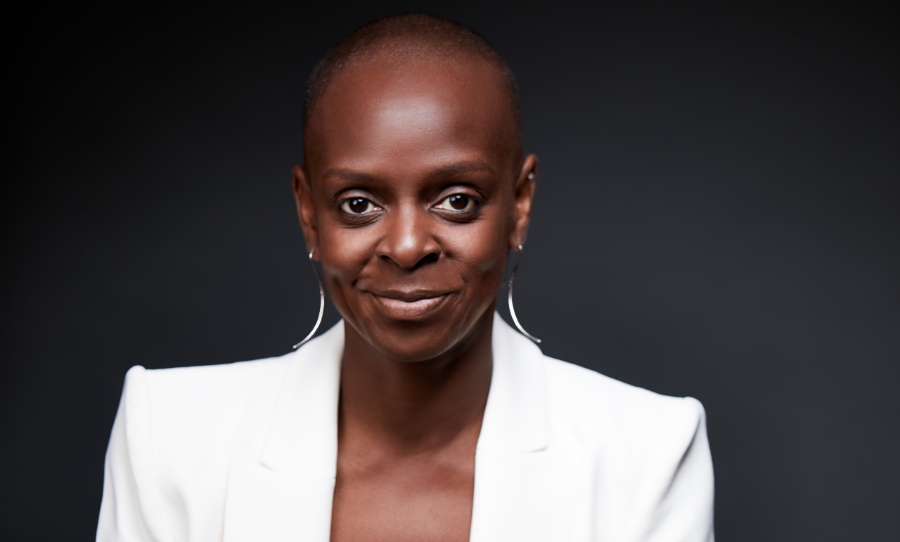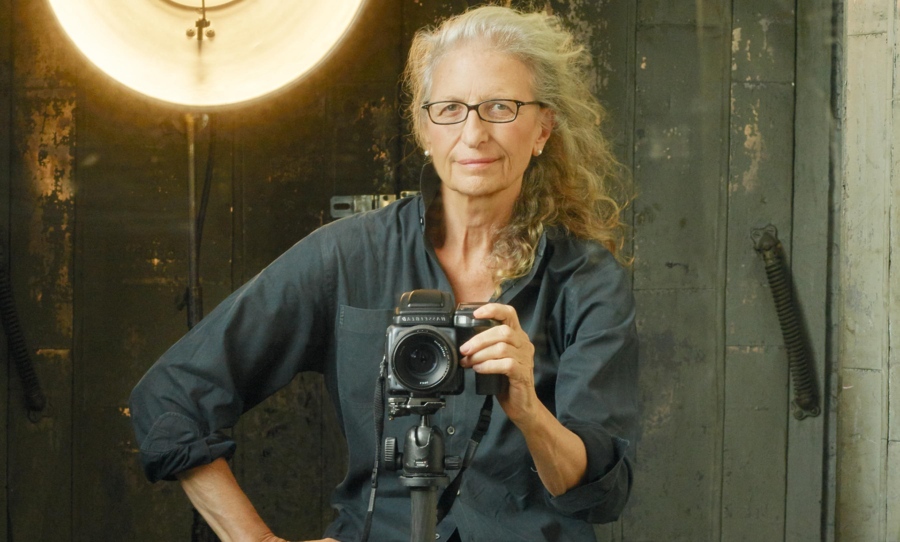Kemi Nekvapil’s POWER blends memoir and self-reflective exercises to cultivate a path to living life unapologetically.
POWER: A Woman’s Guide to Living and Leading Without Apology examines intersectional identity, systems of power, and the skills that can shape our capacities as leaders. This is told through the frame of author Kemi Nekvapil’s own story, from growing up in ’80s England in foster homes, to becoming one of the most respected executive personal coaches in Australia.
Half-memoir, half-guide, POWER is charged with the same vulnerability, resilience, and purpose that Kemi Nekvapil brings to her work as a personal coach. The book uses a mix of the writer’s experiences, as well as some of her clients, to mark a path in the world where women from all walks of life can make moves to reclaim their power, even in the face of discrimination, trauma and self-doubt. Chatting to us from Melbourne, Kemi Nekvapil sat down with Happy Mag to discuss the inspirations and writing processes that were involved in the creation of POWER.

HAPPY: What an intriguing title. It’s an extremely charged, emphatic word. What made you choose to title the book POWER?
KEMI: So, I didn’t necessarily think of the title first. I started writing stories about my life that I thought could be useful for readers, in terms of being a woman. But then I realised that most of the situations where I found myself powerless had been to do with my race, and then the intersectionality of being a woman. So, then I started collecting them and the ideas began to form. I spoke to my writing mentor who asked me whether I had a title and because I was unsure, he gave me the advice to pick one word that aligned with my podcast (The Shift Series). The first title I suggested was ‘Growth’, to which he responded “‘Growth’ is beige. You’re not beige.” [laughs]
Then I thought to myself, “What have I been really curious about? What have I been talking to my clients about?” And that was power. As soon as it came, the next voice that came into my head was, “Who do you think you are to write a book on power?”
HAPPY: Oh yes, you write about that experience in the book.
KEMI: Yeah, and then I knew — knowing enough about the creative process, and trusting my intuition — this was exactly the book I needed to write at the time. Because it scared the life out of me.
HAPPY: I suppose that some of the best things in life are exactly that. The things that scare you.
KEMI: 100%. For some people, they would’ve run a mile after having the thoughts that I did. But I just knew that this was the book I had to write.
“I don’t have to do them once a week, it’s my podcast.”
Your podcast doesn’t have to fit someone else’s ideas. Your show should be representative of your ideas and your personality. Make it work for you. Kemi Nekvapil’s innovative podcast The Shift Series isn’t your average… pic.twitter.com/wFpIkhHy5D
— We Are Podcast (@WeArePodcast) November 19, 2020
HAPPY: Speaking of the book itself, one thing that interested me was the POWER Processes, which were the short prompts and questions that followed every chapter. They seemed so intuitive and flowed so easily — where did those questions come from?
KEMI: I’ve been an Executive and Personal Coach for almost a decade now. So, I’m paid to ask intuitive questions. The way that I coach — and others may have different styles and systems of coaching — is that I am incredibly present to my clients, and the questions that I ask them always come out of that moment. Another reason for the POWER Processes is that I really understand the power of questions. I think that they’re more powerful than answers.
HAPPY: Why do you think that?
KEMI: Because if we’re willing to ask questions, there’s a curiosity that comes with it. It gives us the space for deep reflection and it’s a deep reflection that brings the answers. If we’re always looking for the answers, then we may be searching for ones that are easy, or within our realm of knowledge or experience. But when we’re willing to ask questions, it allows us to go a little bit deeper.
HAPPY: That’s really illuminating. The book itself is quite personal, it blends stories from your childhood all the way to adulthood, to contextualise these deep reflective practices. I’d be interested to know what the writing process was like. Did you experience any reflections, or revelations, of your own?
KEMI: In some ways, some of the hardest things to write were stories where other people were involved; making sure that you can write about your perception of that experience, knowing that if somebody else were writing up their version of that story, that it’d be different. It lines up with POWER Principle #2 (ownership), where I’m able to own up to my experience even if somebody else’s perception of that experience would be different to mine. That was an interesting line to walk. Another challenge was that there are so many topics in the book. Even when I was on the final pages with my editor, I felt like I could have included so many more pieces. So really, the writing process always brings up challenges and magic, but I love writing, so I’m happy to sit with all of it.
HAPPY: You’ve written a couple of books prior to this, right?
KEMI: Yes, I have!
HAPPY: Did your writing process for POWER differ in any way from your previous books?
KEMI: Yes, it did. I began writing the book in January 2020 in India, and I put it down around October of that year. There was something about it, and I’m still not sure what it was, but I knew that I just needed to take a break. Perhaps, because I had self-published my two previous books and I thought I needed an editor. But about a week after that, I ran an online course — and little did I know — there was a publisher that was there as part of my group leadership program. I left the meeting and a few minutes later there was an email from her asking to partner with me on my third book!

HAPPY: Oh, that’s amazing. In the opening chapter of POWER, you describe a really beautiful moment at the Matramandir in South India. If I’m not wrong, in the book you suggest that the experience of visiting that place inspired you to put words to the page to start writing POWER?
KEMI: 100%. After I’d seen that and had that experience of meditation there and really just looking at that building, it doesn’t really feel or look like an earthly structure. And the fact that it was the power of one woman. One woman who had a vision to do something, and look at what she created. (Editor’s note: The Matramandir was built for Mirra Alfassa, known as ‘The Mother’, the founder of the Sri Aurobindo Ashram in Tamil Nadu, India).
HAPPY: Would you say that ethos — the power of a woman — is what connected with you and the stories that you wanted to tell in POWER?
KEMI: Definitely. What it gave me was the idea that women embody power in so many different ways, and yet we are forced to navigate structures that constantly tell us that we are powerless. And the fact that we believe and internalise it. It’s a powerful thing to have to come out of, especially when considering the intersectionality of sexual orientation, disability etc. Sometimes, I’m amazed that we can even get up in the morning.
HAPPY: And where do you find that strength? The strength to get up, the strength to write this book?
KEMI: I found the strength to write it by knowing, as I said before, knowing that I needed to write this book. Knowing that it came to me for a reason. And I think that this is to do with my yoga, meditation, and presence practice for the past 25 years, but I just trusted that POWER was a unique product of my voice, and my personal experiences in navigating different cultural spaces, and for those reasons, no-one else could write it. It was knowing that somebody else could techinically write this book, but it wouldn’t be my book. It wouldn’t be this book. So if I didn’t write it, it wouldn’t get written.
Also, my experience of being a coach and working with people that are successful in many different realms of their life, and knowing that they still have to navigate their relationship with power because they’re operating in structures that don’t serve them.
Kemi Nekvapil says women are conditioned that “good girls” are always available and to make sure others have what they need. Just say no #sheleads2019 @SheLeadsCBR @YWCACanberra @KemiNekvapil1 pic.twitter.com/GBhKJQnouA
— Dr Penny Kyburz (Sweetser) (@DrKyburz) August 2, 2019
HAPPY: That trust in the writing process is so admirable and so necessary. As you’ve mentioned before, you talk about having a very deep connection to writing and language. In the book, you cite writers such as Maxine Beneba Clarke, Roxanne Gay, and Ashley C. Ford. Why are these writers your biggest inspirations, and what is it about their work that speaks to you so powerfully?
KEMI: Oh yes, they are definitely some of my favourite writers. With Maxine Beneba Clarke, whose work The Hate Race is one that I’ve talked about in my own book, it was her experience of navigating Australia in the ’80s, that resonated with my own experience of navigating England in the same period. So, I bought that book and knew that I had to read it, but I wasn’t ready to read it immediately, because I thought “I’ve lived this, I’ve read this story, and I know what’s in this book.”
But when I did read it, the power of Maxine’s voice in The Hate Race was astonishing. The same with Roxanne Gay’s Hunger and reading Ashley C. Ford’s work. Seeing women of colour being vulnerable and unapologetic about their experiences, in a way that other women can see themselves in those stories. That’s what really inspired me.
POWER by Kemi Nekvapil is available now, published by Penguin Random House Australia (RRP $34.99).



